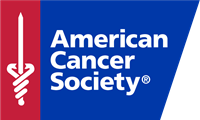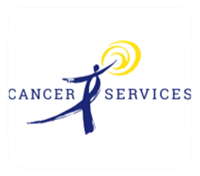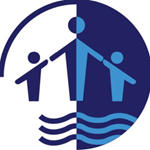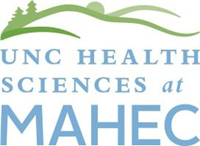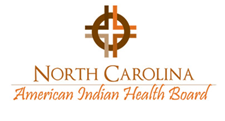Cancer can affect anyone, at any time. We believe that everyone should have an equal chance of surviving cancer. The Comprehensive Cancer Center's Office of Community Outreach and Engagement (OCOE) is comprised of teams based in both Winston Salem, NC and Charlotte, NC. Together, we believe that where you live shouldn’t determine how you fight cancer. Through our community collaborations, partnerships, and programs, we’re working to improve health access and improve health throughout all communities.
Our Mission
To advance community engagement, clinical care and research focused on improving outcomes for everyone in our communities. The Office of Community Outreach and Engagement (OCOE) is passionate about:
- Community outreach engagement and education
- Increasing health access across the cancer continuum
- Providing cancer navigation appropriate to both language and culture
- Helping improve access in clinical trials
- Supporting research in our thriving communities
- Training staff and faculty about the principles of community engagement
- Building community capacity to improve health and well-being
We Are Committed to Conquering Cancer
- Health fairs
- Cancer education sessions
- Staff/faculty training
- Research support
- Cancer clinical trials
To learn more about the Office of Community Outreach and Engagement or to schedule an education or training session, contact our Winston Salem-based team at: 336-713-3665 or our Charlotte-based team at: 980-442-3075.
Our Programs and Initiatives
The Office of Community Outreach and Engagement strives to reduce the burden of cancer on communities. The programs listed here are ongoing initiatives to help address gaps in cancer awareness, knowledge and outcomes.
Our health care professionals and cancer experts are available to speak on a variety of topics, and each presentation is tailored to the specific audience. These sessions are made possible in part by the philanthropic support of the Jane Walker Perkinson Memorial Fund, an endowed fund dedicated to OCOE.
Some of our screening programs include:
Project PINK and Project PINK Plus
Project PINK and Project PINK Plus provide access to free screening mammograms and breast care in a convenient, compassionate environment.
To be eligible for Project PINK, participants must:
- Be 40 years or older
- Not have insurance covering a mammogram annually
- Not have Medicare or Medicaid
- Have a primary care provider
- Be one year since previous mammogram
- Not be pregnant or breastfeeding
- Have no new breast lumps/concerns or pre-existing conditions
Project PINK Plus provides patients who have an existing breast lump or other concerns the opportunity to receive a free diagnostic mammogram and follow-up care.
Lung B.A.S.E.S. 4 Life
Lung B.A.S.E.S. (Bringing Awareness, Screening & Education to improve Survivorship) 4 Life
Lung B.A.S.E.S. 4 Life improves access to cancer screenings, treatment and education in rural populations across our region.
We have two mobile CT scanning units – also known as “lung buses” – that travel to community sites to provide free screenings for lung cancer and head and neck cancer. Participants also receive one-on-one support from a nurse navigator, as well as help quitting tobacco use, if needed.
To qualify for a free screening, participants must:
- Be between the ages of 50 and 80
- Be uninsured, underinsured or have Medicaid coverage
- Have a 20 pack-year smoking history (equal to 1 pack a day for 20 years, or 2 packs a day for 10 years)
- Currently smoke or have quit smoking within the last 15 years
You do not need to be an Atrium Health patient to qualify.
Code T.O.M.
Firefighters have higher rates of cancer than the general population due to exposure to hazardous materials on the job. Code T.O.M. (Taking on Melanoma and other high-risk cancers) is a free screening, cancer education, and prevention program that aims to raise awareness and help firefighters protect their health. The program was created in honor of Tom Robinson, a dedicated husband, father and firefighter who died from advanced melanoma in 2013. His son, James Robinson, an Atrium Health teammate and volunteer firefighter, co-founded Code T.O.M. with LCI in 2016.
Code T.O.M. travels to firehouses across the region to host workshops that include:
- Access to free screenings that can catch cancer early
- Education about the risk factors, signs and symptoms of cancer
- Tips for communicating with doctors about cancer risk
Colorectal Cancer Screening
Our comprehensive colorectal cancer education and screening program, FIT for Life, improves access to care and community resources for underserved and uninsured individuals.
Head and Neck Cancer Screening
We offer free physical examinations to screen for certain types of head and neck cancer.
Prostate Cancer Screening
We offer free prostate-specific antigen (PSA) blood tests to screen uninsured and high-risk men for prostate cancer.
Skin Cancer Screening
Through partnerships, we provide free skin cancer screenings throughout the community.
Cancer Education and Prevention Programs
I CAN Cancer Ambassador Program
The I CAN program offers cancer prevention education for school-aged children (grades K-12) in communities.
Levine Cancer Shadow Day and Medical Explorer
These programs offer youth the opportunity to learn about important life and career skills as well as cancer prevention through immersive experiences and mentorship.
Tea, My Family Tree, A Healthy Me
This educational event is a celebration of womanhood that focuses on improving community members’ understanding of women’s cancers, genetic risk and the importance of HPV vaccination.
Renacer
This community-based cancer survivor support program for Hispanics/Latinos focuses on 5 key areas: recurrence prevention, nutrition, screening, physical activity and emotional support.
The Office of Community Outreach and Engagement plays a vital role in addressing the concerns with health access and opportunity during their cancer experience. We offer non-clinical navigation services to our American Indian, African American, Hispanic, rural and adolescent/young cancer patients.
Our population health navigators provide culturally and linguistically competent navigation services to cancer patients, families and caregivers to help them overcome health care system and social barriers, facilitating timely access to quality medical and supportive care from diagnosis across the cancer continuum. In addition, research support is delivered through patient education, providing our cancer patients with general information about the role of research in cancer care.
Some of Levine’s patient programs include:
- Cancer Survivors Day: Patients, survivors, their families and caregivers are invited to this annual celebration of life, which honors those affected by cancer with a day filled with fun activities and live music.
- Hope in Focus: Funded by the Taylor Soloff Memorial Endowment, Hope in Focus offers patients and their loved ones a professional photography session to bring joy and capture lifelong memories.
- Farm to Family: Funded by the Taylor Soloff Memorial Endowment, Farm to Family delivers fresh fruits, vegetables and protein directly to patients bimonthly.
- Levine Cancer Patient Special Needs Fund:This program provides short-term assistance to help eligible patients with costs such as household bills, transportation and temporary lodging.
The Tobacco Program in the Office of Community Outreach and Engagement focuses on expanding outreach efforts to overlooked areas with higher tobacco use rates by addressing regional tobacco cessation capacity. Tobacco use is the leading modifiable risk factor for cancer, and 70% of our priority counties have elevated smoking rates, most with a tobacco use percentage above the national average of 17.1%. The purpose of this program is to reduce the prevalence of smoking and improve cancer incidence and mortality rates.
The program serves our communities by:
- Educating the public about the health risks of tobacco and resources to help quit
- Developing partnerships to help guide program planning, implementation and evaluation
- Building capacity in clinical settings to help improve internal tobacco cessation processes
- Facilitating tobacco cessation groups: This evidence-based group program provides support and resources to those motivated to quit tobacco use. Weekly sessions led by a certified tobacco treatment specialist are discussion-based, including subjects such as health risks, cravings and triggers, stress management, nutrition and exercise. To join this program, complete an interest form.

